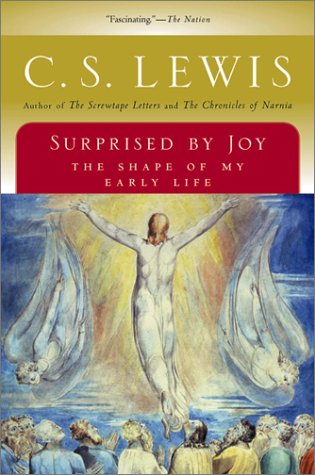The Last Battle is one of my favourites of the Chronicles of Narnia... even though they're all pretty much my favourite books ever... I just really really love this one :)
Evil takes one true line about Aslan's character - "not a tame lion" - and twists it so as to give the completely wrong idea.
Tirian slaying the Calormen who were driving the Talking Horse reminds me of Moses killing the Egyptian in the book of Exodus.
The one dwarf who returns reminds me of the one leper who returns to give thanks to Christ.
"By mixing a little truth with it they had made their lie far stronger." Satan does this all the time.
"Tirian and his friends could only see the back of Rishda Tarkaan, so they never knew what his face looked like as he shrugged his shoulders and said, "Bear witness all that I am guiltless of this young fool's blood."" Just like Pilate.
Some of the animals join the Narnian side, and some the Calormenes, but most just slip away and don't choose either side. I wonder if this is how it will be for people at the last day.
Showing posts with label reality. Show all posts
Showing posts with label reality. Show all posts
Thursday, November 10, 2011
Thursday, October 27, 2011
The Lion, the Witch, and the Wardrobe
I think that reading the Chronicles of Narnia gives me the same feeling that northern mythology gave Lewis - sweet, painful joy. I remember crying when I was little because it wasn't real and I couldn't go there. Just something about it always gets me and I feel that pang of remembering something that I've never experienced yet... "an unsatisfied desire which is itself more desirable than any other satisfaction." I think because I am religious and have a relationship with God that it's not more desirable than any other satisfaction... but I do love the pang of reading Narnia. It reminds me of something, like news from a country I have never yet visited. :)
The Turkish Delight - "Anyone who had once tasted it would want more and more of it, and would even, if they were allowed, go on eating till they killed themselves."
"Edmund was already feeling uncomfortable from having eaten too many sweets, and when he heard that the Lady he had made friends with was a dangerous witch he felt even more uncomfortable. But he still wanted to taste that Turkish Delight again more than he wanted anything else."
The Turkish Delight - "Anyone who had once tasted it would want more and more of it, and would even, if they were allowed, go on eating till they killed themselves."
"Edmund was already feeling uncomfortable from having eaten too many sweets, and when he heard that the Lady he had made friends with was a dangerous witch he felt even more uncomfortable. But he still wanted to taste that Turkish Delight again more than he wanted anything else."
Thursday, September 29, 2011
Miracles {II}
Again, I would like to start by giving part of a definition of miracles that comes from my church:
"Christianity is founded on the greatest of all miracles, the resurrection of our Lord. If that be admitted, other miracles cease to be improbable."C.S. Lewis starts chapter XIV by promoting a different miracle as the greatest of all:
"The central miracle asserted by Christians is the Incarnation. They say that God became Man. Every other miracle prepares for this, or exhibits this, or results from this."However, I think that the two are similar enough that Lewis' discussion will still hold some jewels of merit for us. Lewis maintains that miracles are not "arbitrary interferences" or "disconnected raids", but
"the various steps of a strategically coherent invastion - an invasion which intends complete conquest and "occupation." The fitness, and therefore credibility, of the particular miracles depends on their relation to the Grand Miracle; all discussion of them in isolation from it is futile."In other words, all miracles are in some way connected to the condescension of God. Lewis would I think definitely agree with the last sentence of the LDS definition given above: "If that [the resurrection] be admitted, other miracles cease to be improbable."
Thursday, September 1, 2011
The Screwtape Letters
The Screwtape Letters is one of my all-time favourite books. Lewis' mastery of irony works to great effect in persuading the reader to take a second look at themselves. At times stinging, frequently profound, this is a book unmatched by others and in a category all it's own. Advice from one devil to another? Pure genius.
Some favourite quotes:
IV
"They constantly forget... that they are animals and that whatever their bodies do affects their souls."
"Keep them watching their own minds and trying to produce feelings there by the action of their own wills. When they mean to ask Him for charity, let them, instead, start trying to manufacture charitable feelings for themselves and not to notice that this is what they are doing. When they meant to pray for courage, let them really be trying to feel brave. When they say they are praying for forgiveness, let them be trying to feel forgiven."
{IV always make me reconsider my prayer habits...}
VI
"Do what you will, there is going to be some benevolence, as well as some malice, in your patient's soul. The great thing is to direct the malice to his immediate neighbours whom he meets every day and to thrust his benevolence out to the remote circumference, to people he does not know. The malice thus becomes wholly real and the benevolence largely imaginary."
VIII
"It is during such trough periods, much more than during the peak periods, that it is growing into the sort of creature He wants it to be... He wants them to learn to walk and must therefore take away His hand; and if only the will to walk is really there He is pleased even with their stumbles. Do not be deceived, Wormwood. Our cause is never more in danger than when a human, no longer desiring, but still intending, to do our Enemy's will, looks round upon a universe from which every trace of Him seems to have vanished, and asks why he has been forsaken, and still obeys."
Some favourite quotes:
IV
"They constantly forget... that they are animals and that whatever their bodies do affects their souls."
"Keep them watching their own minds and trying to produce feelings there by the action of their own wills. When they mean to ask Him for charity, let them, instead, start trying to manufacture charitable feelings for themselves and not to notice that this is what they are doing. When they meant to pray for courage, let them really be trying to feel brave. When they say they are praying for forgiveness, let them be trying to feel forgiven."
{IV always make me reconsider my prayer habits...}
VI
"Do what you will, there is going to be some benevolence, as well as some malice, in your patient's soul. The great thing is to direct the malice to his immediate neighbours whom he meets every day and to thrust his benevolence out to the remote circumference, to people he does not know. The malice thus becomes wholly real and the benevolence largely imaginary."
VIII
"It is during such trough periods, much more than during the peak periods, that it is growing into the sort of creature He wants it to be... He wants them to learn to walk and must therefore take away His hand; and if only the will to walk is really there He is pleased even with their stumbles. Do not be deceived, Wormwood. Our cause is never more in danger than when a human, no longer desiring, but still intending, to do our Enemy's will, looks round upon a universe from which every trace of Him seems to have vanished, and asks why he has been forsaken, and still obeys."
Subscribe to:
Posts (Atom)













